By Girija Madhavan
Reading about student life now in newspapers and magazines, the mind harks back my own days in Maharaja’s College in the University of Mysore in 1955-58; and how different it was for women then. We joined the institution as students, equal with the young men. But the social rules were very different for us then. We had to mind the rules of speech, dress and deportment of “Proper Young Ladies” at all times. We hardly ever spoke to the men students. Stories related by aunts and cousins of previous generations of their co-educational experiences in Mysore and elsewhere, reinforced this belief.
Life in Maharani’s College for Girls had been easy for me. But after passing the Intermediate exam there, my mother, Mukta, wanted me to do an Honours course which was offered in Maharaja’s College. I wanted to opt for English Literature but she was firm on the subject that I should study. “Take Sociology Honours. This course offers Psychology, Indian Philosophy, Anthropology as well as Sociology which is the Coming Subject which can take you to America for further studies.” The course was headed by Professor N.A. Nikam, later Vice-Chancellor of Mysore University.
So I found myself with fourteen other students in a small classroom in a big campus of spreading, beautiful trees. We were accommodated on benches with desks welded to them with metal brackets, a desk and chair in front for the lecturer. We were fifteen of us, seven women and eight young men. I was delighted to find a namesake, Girija Venkatraman, who outshone everyone else with her formidable intellect. Rose, Azizunissa and Kalimullah represented the minority communities; Girija Venkatraman and I were “Tam Brams” (Tamil Brahmins). Saroja, Nagaratnamma, lovely Sachi Devi, Bore Gowda and Basave Gowda were Kannadigas, while two Vishwanaths and Seshadri were Brahmins. While the women sat on one side of the room, the men on the other, there was still some happy camaraderie among us. Nowhere did religion or caste divide us.
In addition to using our own small classroom, we also went to the big BA Hall for classes on subjects like Psychology, Anthropology, compulsory English and second-language classes
that we shared with the BA students. Women took up their favourite seats in the right side of the hall. The male students would sit on the left side, beyond the aisle from us. To communicate with the girls, remarks were sometimes written on their favourite desk with a pen. Mukta recounted how in 1920s Madras [now Chennai], a lovely young woman studying medicine, was astonished to find inscribed on her desk. “From the 1st to the 4th of every month you smell of blood.” A young man sent her a wrapped gift which she returned. Saddened, he remonstrated, “I only sent you A Shropshire Lad,” [a novel of that name by A. E Houseman!!!] More romantic were the poems. One of them began, “A rose, a rose, a rosy rose, On hairy head a woman throws…” and a wish to give the lady-love a rose.
Remarks were made in passing, on the grounds or in the corridors. After my mother cut and styled my hair, a loud remark of “Anglo-Brahmins !”, followed me down the steps. At the Dasara Exhibition, Mukta found a cosmetics stall selling “Yolanda”, a face powder said to control oily skins and protect against sun. The hue was a pale bright pink. It was instantly noted, “Ivatthuishtu Pinku?” [Why so much pink today?] “More than many coats, kano!”
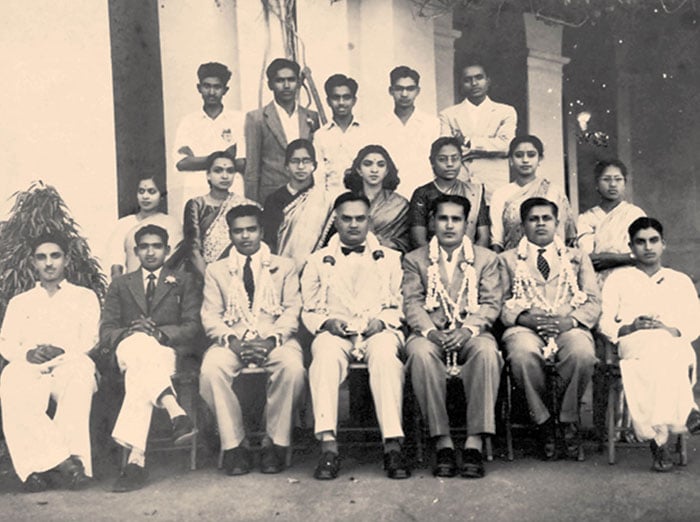
The library was a serene and silent place that I liked and the other was the “Ladies Room”, a large room with some chairs and a welcome bathroom. We could sit and relax but had to show due respect to the senior girls there. I crossed the limit of informality once. The oldest among them was attractive, with green-hazel eyes and a commanding presence who admonished me, “You should respect your elders. I am doing my Sanskrit MA”. I was duly chastened.
I remember Professor Nikam’s Philosophy classes. He was a fine speaker and commanded respect with his brilliant lectures. He wanted me to do a Thesis on “Hegel and the Welfare State” after the Honours course was over, a daunting task for me at twenty.
Several of the group have passed away, contacts lost. But they each taught me something special about life. Nagaratnamma, a delicate beauty, looked after her parents most dutifully, wishing to serve them as “Seva” [service]! Rose wished to be a teacher, Azizunissa to make a success of her studies in a big college. Shivanna, a top student, was an example of polite good humour. I may not have been receptive to the teachings of Hegel, but each of the comrades in the Class of 1958, young women and men contributed to my understanding of our small and wonderful life as students and later the big world beyond that would try our strengths.



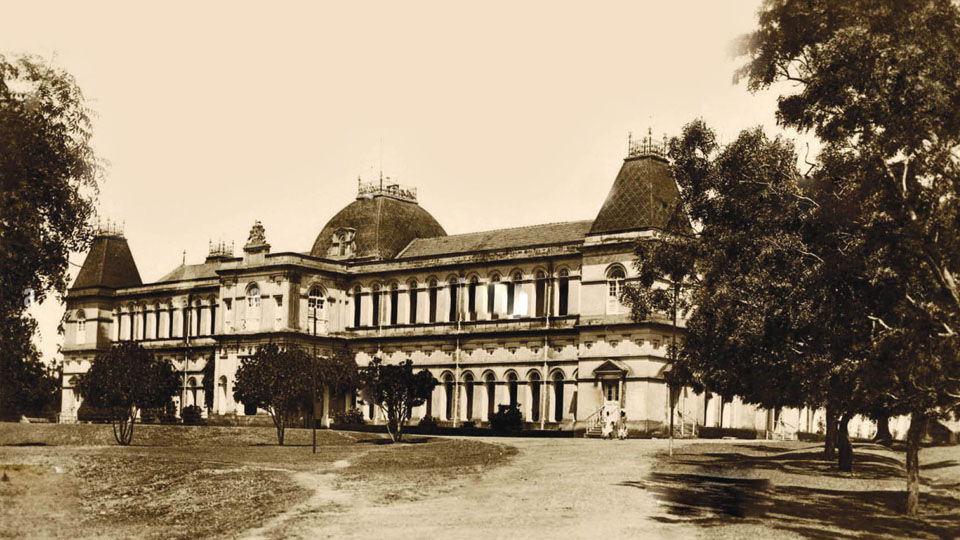
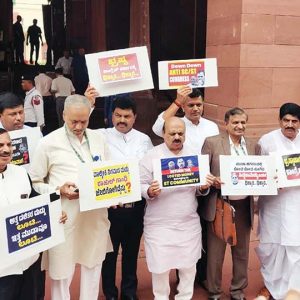
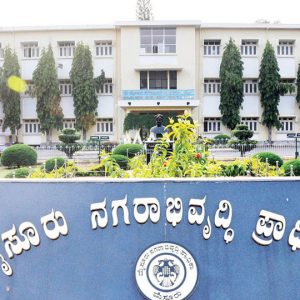
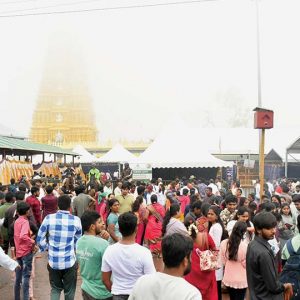
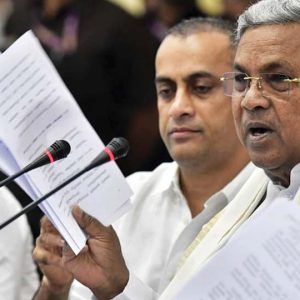
“I wanted to opt for English Literature but she was firm on the subject that I should study. “Take Sociology Honours. This course offers Psychology, Indian Philosophy, Anthropology as well as Sociology which is the Coming Subject which can take you to America for further studies.”
It was a misconception to assume the above combination of subjects would enhance one’s opportunity to study in America, even in 1958. By 1950s, American universities offered financial assistance to study graduate ( post graduate) studies in science. The next attractive subjects for them was economics and statistics, which were increasingly essential for the finance and other institutions in America.
If this author had chosen to study English Literature, she would have come under the tutelage of Prof CD Narasimhaiah , an erudite English scholar who was trained in Cambridge University.
Completing a honours degree course in sociology etc.. to help to study in America in those days of 1950s?
I have never heard such nonsense, as sociology, psychology or anthropology courses were not the types of courses American universities expected from Indian graduates to seek further studies in their country.
I agree with the above poster that female students studying science subjects such as chemistry were rare in America in those days. Any female student with an degree in science subjects would have welcome with open arms in the top American universities. That was the route, the mother of the current VP Kamala Harris took, after completing her degree in science subjects in New Delhi, and was readily accepted in the top university in California, with financial assistantship.